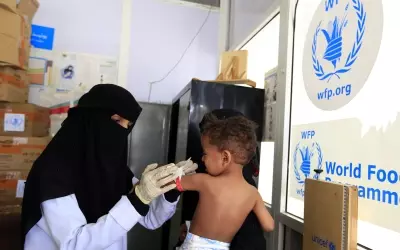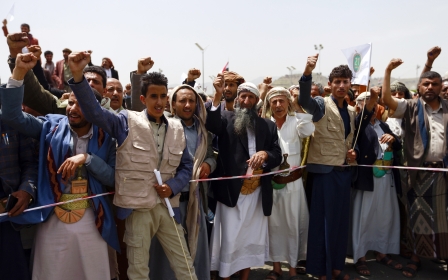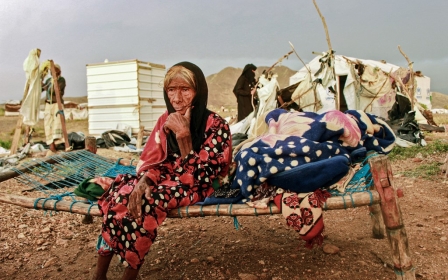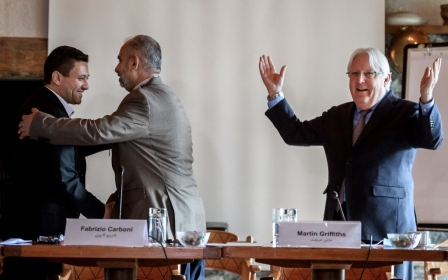Yemen's Houthis slam World Food Programme's Nobel Peace Prize win
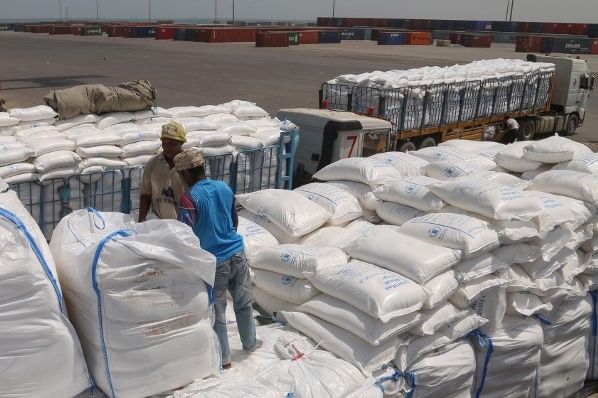
Yemen's Houthi rebels accused the World Food Programme (WFP) of failing stop famine in the war-ravaged country, shortly after the UN body was awarded the Nobel Peace Prize for fighting global hunger.
Houthi spokesman Talaat al-Sharjabi told the AFP news agency on Friday that the WFP had "largely failed in the biggest task for which it was chosen (for the Nobel Peace Prize), and that is combating hunger".
"A large number of people suffer from malnutrition... and there is also a failure on the WFP's part to be neutral in terms of humanitarian aid distribution," he said.
Yemen has endured years of chaos since the Houthis seized the capital, Sanaa, in late 2014 and ousted former president Abd-Rabbu Mansour Hadi from power.
New MEE newsletter: Jerusalem Dispatch
Sign up to get the latest insights and analysis on Israel-Palestine, alongside Turkey Unpacked and other MEE newsletters
Saudi Arabia and its allies intervened in the country's civil war in March 2015, and have since carried out more than 20,000 airstrikes in an effort to roll back the rebels, with one-third striking non-military sites, including schools, factories and hospitals, according to the Yemen Data Project.
The protracted conflict has triggered what the UN calls the "world's worst humanitarian crisis", with roughly 24 million people forced to rely on aid while 10 million are staring at famine.
The WFP has had a troubled relationship with the Houthis, who control much of the north of the country, including Sanaa.
The UN body tries to feed 13 million people each month, however, the WFP temporarily suspended deliveries to Houthi-held areas last year after accusations the Houthis were diverting food. Following this, the group dropped its threat to impose a tax on aid.
The WFP has since pushed for a biometric registration scheme to avoid the diversion of supplies.
In August 2019, it reached a deal to resume deliveries after the Houthis offered guarantees concerning the beneficiaries.
However, that same month, Houthi forces destroyed tonnes of food aid they said had expired after it was reportedly held up for months.
A UN source said at the time that the aid had been intended for delivery to families in Yemen's third city of Taiz, but "ended up detained at a checkpoint for months and months".
Aid has recently been cut at hundreds of health centres and some humanitarian programmes reduced or shut down, as the UN struggles for financial support amid cuts in funding from the US.
Earlier this week, the international charity Oxfam said the global community had donated about 25 US cents per day for each of the 24.3 million Yemenis in need of assistance this year.
Still, Yemen's internationally recognised government welcomed the WFP's award, pointing to the "wise and courageous" leadership of the UN agency's executive director, David Beasley.
"The WFP plays a pivotal role in relief efforts in Yemen... and has been able to impose its conditions on the Houthi (rebels) and implement different programmes," said Abdul Raqib Fateh, the chairman of Yemen's relief committee.
Middle East Eye delivers independent and unrivalled coverage and analysis of the Middle East, North Africa and beyond. To learn more about republishing this content and the associated fees, please fill out this form. More about MEE can be found here.


